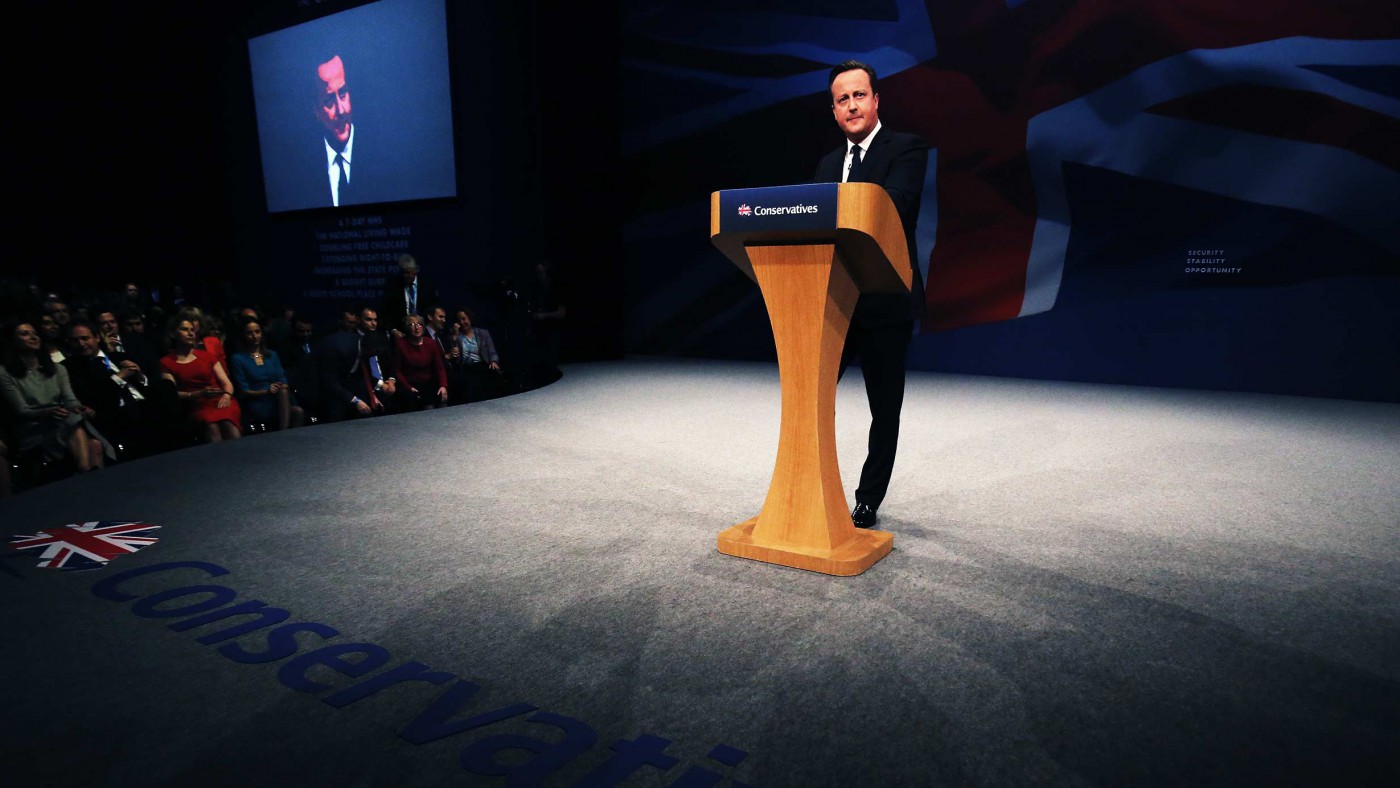It was not a good speech. It was a great speech: one of the greatest. A defining moment in the Cameron Premiership, it will be quoted for decades to come. It could be a Parsifal climax, when ancient wounds are healed and a new world emerges – a new Conservative world.
For fifty years, the Conservative party has persistently under-performed its political-demographic potential. In 1964, against Harold Wilson, who then appeared to be the voice of modernity and progress, Alec Home, who did not, still managed to win 43.4 percent of the vote. Since 1964, Labour’s claims to espouse modernity and progress have had diminishing credibility, while every demographic factor has moved in the Tories’ favour. Trade union membership, down: home ownership, up: working class self-indentification, down: middle-class equivalent, up. Yet the Tories have only twice exceeded Alec Home’s losing percentage.
Why? Because they were seen as the party of the complacent rich. Tories did not worry about the local hospitals, because they would never dream of using them: local schools, ditto. A majority of voters bought the argument that Tories were only interested in the better-off and had little to offer the struggling classes. If it had not been for the Left-wing lunatics, Labour could have dominated British politics – as Tony Blair did, once the loonies had – for a season – been marginalised.
Now the loonies are back, and in charge. So as David Cameron knows, he has the chance to dominate British politics. This is the Cameron-as-Parsifal project: to establish the Tory party’s claim to speak for the entire country: for anyone who has aspirations beyond the dole, the food bank and throwing eggs at Tory delegates: to consecrate the Tory Grail. But will it work?
Yes, subject to one proviso. Most of us, when criticised, only become irritated if the criticisms are justified. That is also true of David Cameron, who is always cross when he is accused of being an essay-crisis Prime Minister. One can understand why. When it comes to government, the accusation is absurd. He has faced hideously difficult challenges, especially on foreign affairs. But no-one has doubted his ability to command and control.
Politics is another matter. Whenever he bestirs himself, the PM is a superb politician. He will sport his oak, prepare the cafetiere, address his desk, and produce the sort of essay which led some of his dons to encourage him to try for All Souls. Then, he will relax.
That has to stop. Today, David Cameron stamped his authority on his party and on the country. If he is to win the argument on Europe, he will have to retain that momentum. He can do it; he is the dominant figure in British politics. But he will have to spend more time on political persuasion.
There is a further difficulty. As Margaret Thatcher never tired of repeating, you will never help the poor by assailing the rich. Labour would have us believe that there is a choice between decent public services and individual prosperity: that the only way to deal with poverty is confiscatory taxation. Tories know that this is nonsense. The party now needs the intellectual and political courage to say so.
The choice does not lie between having billionaires or poor people on the breadline. Only a society in which people can become billionaires will be able to eliminate the breadline, except for the incorrigibly idle. Tories ought to be making that point. With its absurd opponents crushed and its sane ones in catatonic despair, the Tory party is in a position to command the central ground of political debate and to impose its narrative. This is no time for cowardice.


